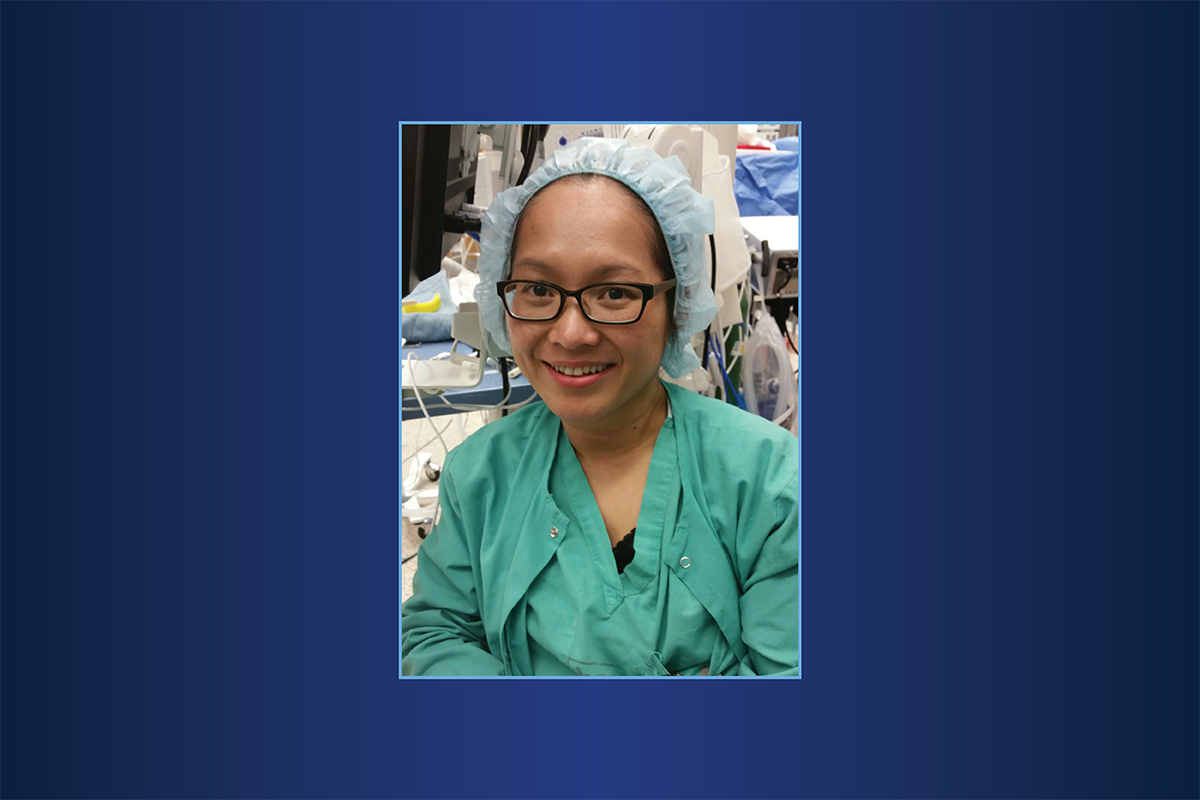Advanced Practice Provider Spotlight: Certified registered nurse anesthetist shares perspective on caring for diverse patients

Advanced practice providers (APPs) play an integral role in meeting the needs of Penn State Health’s increasingly diverse patient populations. With their advanced training and credentials, these professionals expand access to high-quality care, build trust with patients and are a valuable aspect of patients’ overall experience.
Prolung Ngin, a certified registered nurse anesthetist (CRNA) at Penn State Health Milton S. Hershey Medical Center, said she was inspired to become a health care practitioner at a young age when she was her mother’s interpreter during her doctor’s visits and hospitalizations. Her family had fled Cambodia as political refugees and settled in the United States, where Ngin said she admired the doctors and nurses who cared for her mother. That motivated her to learn to care for her mother and others as well.
Ngin studied to become a nurse at Villanova University near Philadelphia and planned to become a pediatric critical care nurse practitioner. Part of her pediatric critical care transport training involved performing advanced airway management in the operating room. Her interactions with other CRNAs piqued her interest in pursuing certification in the field, which she said were a natural fit with her experience in pediatric critical care and transport.
A CRNA specialty, Ngin added, “allows a marriage of advanced critical care skills, the technical skills, advanced knowledge and skill sets required to take of care of patients in a variety of settings.”
After graduating from the nurse anesthesia program in 2010, Ngin began working at Hershey Medical Center, where she said she enjoys providing care to its diverse patient population.
Addressing diversity challenges in the field
Diversity in the nurse anesthetist field was challenging when she was enrolled in the anesthesia program at Villanova, Ngin said. At that time 85% of the students were white, 14% were Asian and there was no Black or Latino representation in the program. She compared those statistics to the current composition of CRNAs at Penn State Health, which is predominantly white, with 6% Asian and 8% Black CRNAs but no Latino representation.
Reflecting on the impact of diversity in her field, Ngin shared that she feels socially isolated from time to time and “invisible” as a minority female. Because English is her second language, she experiences occasional microaggressions, she said.
While there is always room for improvement, “I think it’s been very positive that there is a systemwide push for inclusion and diversity at Penn State Health,” Ngin said. “By doing this, we are meeting the need of our growing diverse patient population. I think we are moving in a good direction.”
One way Penn State Health is helping to meet the needs of its diverse patients is by being flexible with its medical processes, allowing families to be a part of their child’s care in the hospital. She also noted the health system’s effort to address language barrier challenges through certified interpreters, appreciating different cultural beliefs and traditions and providing equitable care to all, no matter their socioeconomic background.
The best approach to addressing diversity issues, Ngin said, is by “leaders and educators continuing to promote a culture of acceptance, understanding and empathy toward diverse individuals, staff and patients.”
How to become a CRNA
After CRNAs earn a bachelor’s degree, become a registered nurse and gain experience in critical care, they must also earn either a doctorate in nursing practice or in nurse anesthesia practice and pass a national board certification exam before obtaining a license to practice in their state.
Patient care responsibilities
CRNA patient care responsibilities include:
- Administering anesthesia before, during and after surgery
- Monitoring a patient’s response to anesthesia
- Educate patients before and after they receive anesthesia
The advance practice providers at Penn State Health include certified registered nurse practitioners, physician assistants, certified registered nurse anesthetists, certified nurse midwives and clinical nurse specialists. Rigorously trained and credentialed, APPs work collaboratively with other health care providers to offer patients the highest level of care possible.
This is the second feature in our APP Spotlight series. See the March APP Spotlight feature on nurse practitioners.
If you're having trouble accessing this content, or would like it in another format, please email Penn State Health Marketing & Communications.
